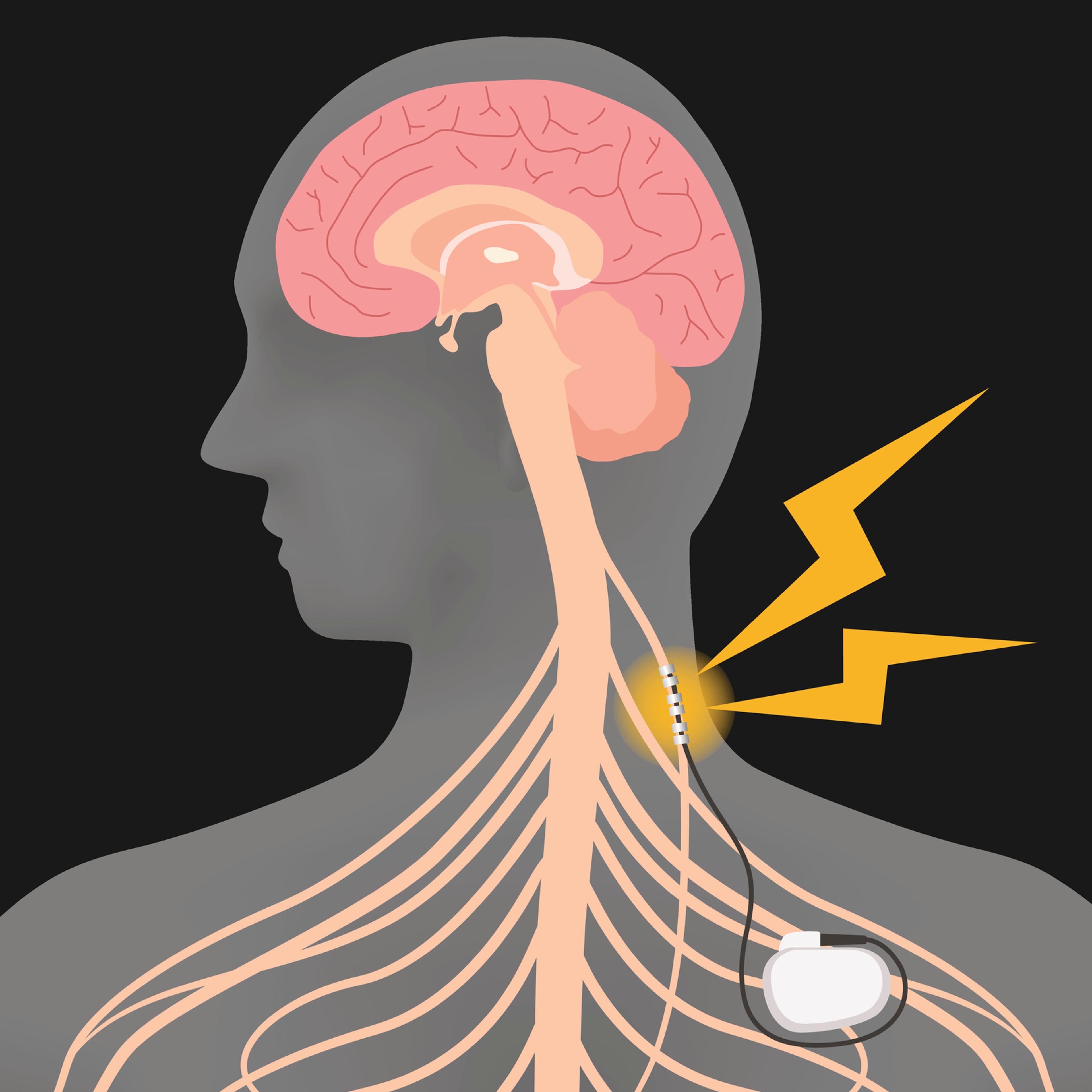What is the Vagus Nerve?
Jake Newby
| 3 min read

We don’t typically talk or even think about our vagus nerve. It helps control some of our body’s most basic, involuntary functions. When we breathe, digest food, sweat and experience heart rate fluctuations, the vagus nerve is largely responsible. It influences nearly every internal organ.
Also known as the vagal nerve, the vagus nerve is one of the main nerves of the parasympathetic nervous system. While the sympathetic nervous system regulates the body’s “fight or flight” response, the parasympathetic nervous system helps the body come down from that response and begin to rest and relax. The rhyming phrases “rest and digest” and “feed and breed” are often used to help people remember what the parasympathetic nervous system does best. And the vagus nerve — one of the longest nerves in the body — is like the conductor of the entire system.
Here's what to know about vagus nerve stimulation, vagus nerve dysfunction and signs and symptoms to watch for.
Vagus Nerve Stimulation
Research done on the vagus nerve indicates that stimulation with electrical impulses can potentially help improve mood and soften symptoms in individuals who suffer from treatment-resistant depression.
Vagus nerve stimulation is a medical treatment that uses devices to deliver electrodes to the vagus nerve, helping to mitigate inflammation in the body. It was approved in 2024 by the Food and Drug Administration (FDA) to treat epilepsy, depression and stroke rehabilitation. It can also treat conditions like diabetes, posttraumatic stress disorder and inflammatory autoimmune conditions such as Crohn’s disease and rheumatoid arthritis.
Typically, a vagus nerve stimulator (VNS) device is implanted near the collarbone by surgeon. Talk with your health care provider if you have questions about your health. They can advise you on a course of treatment that’s right for you.
What is a Vagus Nerve Stimulator?
A VNS is a device that helps treat seizures in patients who are resistant to conventional medical treatment, such as medication. VNS implants are in some instances advised by health care providers as an alternative treatment choice.
Similar to a pacemaker, the VNS contains two parts: a pulse generator and leads. When implanted, the pulse generator sits in your chest under your skin, while the leads run from the generator to the vagus nerve. Receiving one requires a surgical procedure, but external VNS' are also available.
Vagus nerve stimulation involves using electrical impulses to stimulate the nerve because vibrations stimulate the parts of the vagus nerve found in the back of the throat. Many devices that apply this treatment are approved by the U.S. Food and Drug Administration (FDA).
What functions do the vagus nerve help regulate?
Involuntary sensory and motor functions the vagus nerve helps regulate include:
- Digestion
- Frequency of urination
- Heart rate, blood pressure and respiration (breathing).
- Immune system responses.
- Mood
- Mucus and saliva production
- Skin and muscle sensations.
- Speech
- Taste

Vagus nerve dysfunction
Many symptoms of vagus nerve dysfunction overlap with symptoms of other conditions, simply because the vagus nerve affects so many bodily functions. Some signs and symptoms of vagus nerve dysfunction include:
- Abdominal pain and bloating
- Acid reflux
- Changes to heart rate, blood pressure or blood sugar
- Dizziness or fainting
- Hoarse voice
- Loss of appetite or a feeling of fullness after eating minimal food
- Nausea and vomiting
- Trouble swallowing
- Unexplained weight loss
- Wheezing
More research is needed to see how and to what extent vagus nerve issues impact mental health, chronic mood disorders, chronic headaches and even Alzheimer’s disease. Conditions like gastroparesis and vasovagal syncope are commonly traced back to the vagus nerve.
How to keep your vagus nerve healthy
Some of the same healthy habits or lifestyle choices you adopt to become generally healthier can also strengthen your vagus nerve. They include:
- Cold water immersion therapy
- Exercise
- Massages
- Listening to music
- Meditation
Read on:
- 5 Food and Medication Combinations I’d Avoid
- Is Falling Asleep After Eating a Sign of Diabetes?
- How to Prepare for an Exercise Stress Test
Photo credit: Getty Images





